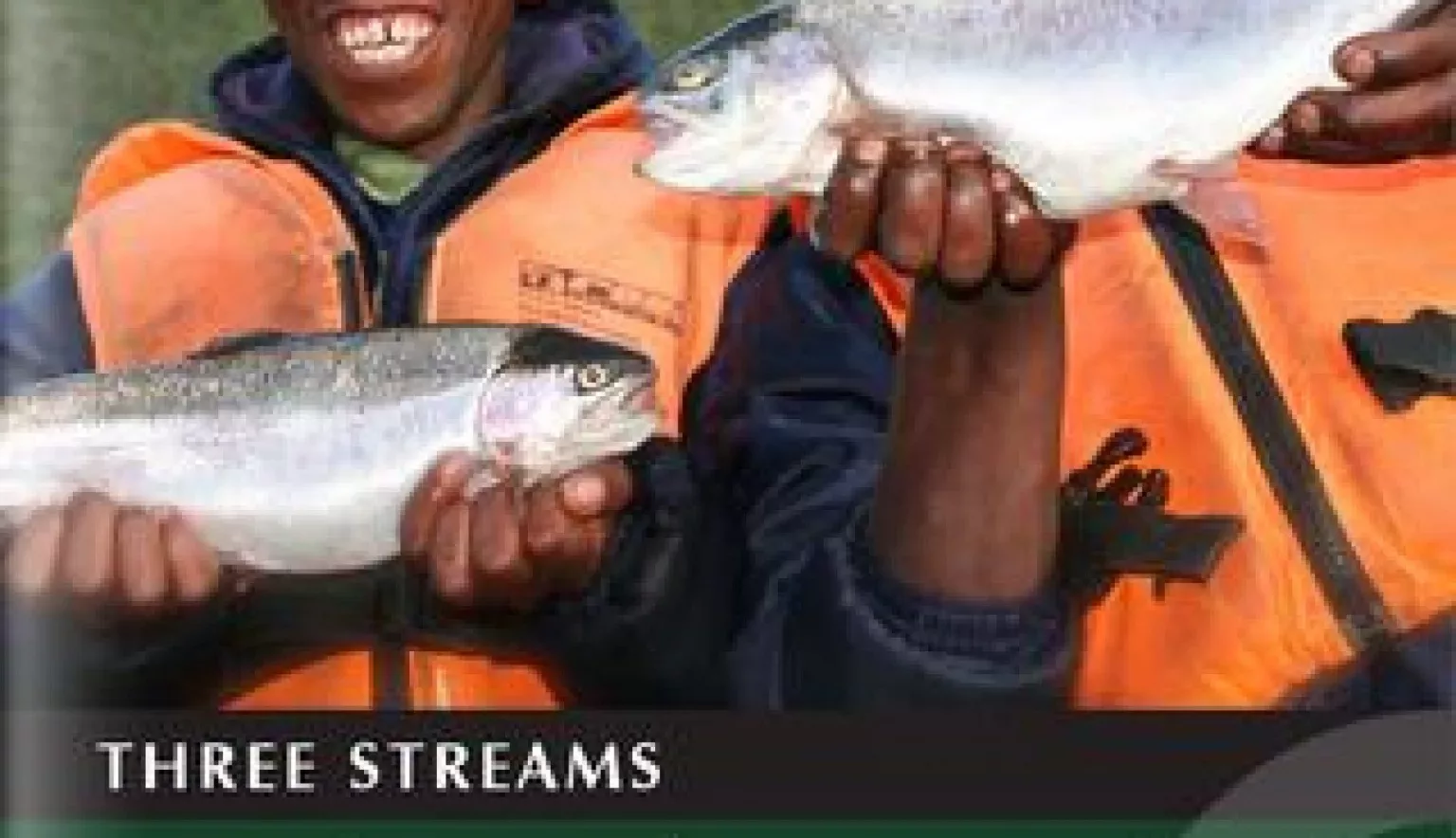Having been present in the aquaculture industry since 1990, Three Streams has experienced first-hand the need to address the intensifying demand for quality fish products in sub-Saharan Africa, through its involvement in the entire value chain; including research & development and distribution of marine fin-fish.
25 YEARS OF SUSTAINABLE AQUACULTURE
Celebrating its 25th anniversary this year, the Company has witnessed healthy and steady growth of its business in line with increasing demand for aquaculture production; helping to build a market that was virtually non-existent a few decades ago, into a thriving mainstream retail, wholesale and foodservice industry.
“Supported by my two brothers, Andrew and David, we were able to embark on an ambitious strategy of vertical integration with a concerted focus on supplying a quality product. Rather than trying to be a price-setter, the business was designed to recognise the need to remove pressure on the ocean’s dwindling resources by establishing sustainable fish farming activities and value-added services such as smokehouses and hatcheries,” explains Gregory Stubbs, Chief Executive Officer of Three Streams.
Now with a footprint spanning beyond South Africa into Zimbabwe and the highlands of Lesotho, Three Streams has created a better economy of scale for the business, creating fruitful partnerships that add value through sustainable fish farming practices.
“The future of fish farming and production requires continuous investment back into the Company, and keeping a close eye on the latest industry trends and regulations and training our staff to uphold these standards in order to maintain customers for the long-term,” he adds.
IDENTIFYING POTENTIAL
Through its closely-linked divisions spanning the whole lifecycle of fin-fish, Three Streams has been adapting to the aforementioned increase in demand by growing its salmon and trout operations across Africa.
Stubbs highlights: “Since our working with Nynga Trout Farm in Zimbabwe, we have been on a mission to completely turn the previous operations around and draw attention to the true potential for trout production and supply in the country.
“It is an exciting process to research the potential to grow salmon and trout in new sites across Africa, but is one that is costly and sometimes does not bear fruit.”
When investment does pay off, it can yield great results; with one such example being Katse Fish Farms (KFF) in Lesotho; which Three Streams has a 35 percent shareholding in.
“KFF was a way to expand production relatively close to our South African operations, and, working in tandem with other investors, the Company has become the premier supplier of the Royale Highlights Trout brand,” he adds.
Aligning with the world’s sustainable fish farming goals and regulations, KFF is just one example of Three Streams’ good farming practices.
Stubbs further details: “KFF is all about quality, both in terms of quality of life for the trout, and the subsequent final product. Low stocking densities of one percent fish to 99 percent water allows our fish to grow strong, lean and healthy. Moreover, we make sure that all our stock is traceable from the egg to the plate, grown by one of our proven sustainable farmers.
“As a result, KFF has now reached the right quality and right pricing to satisfy the current demand in South Africa and Lesotho; so we are now looking towards new market opportunities outside of Africa, such as in the Middle East.”
In order to make sure that its supply of fish is consistent with its expansion plans, Three Streams is planning a significant upgrade to its juvenile trout hatchery operation in South Africa, targeting a healthy production figure of 1,200 tonnes of large trout a year. “And we will also continue to implement the relevant technologies to complement our processing activities, such as automated brining, portioning and washing equipment, and working with the likes of Marel to implement the right technical equipment and software that makes a meaningful difference to our operations,” he says.
Additionally, and amongst other regulatory achievements, the business operates to Marine Stewardship (MSC) and Aquaculture Stewardship (ASC) certification standards; the latter accreditation is not yet available in South Africa, but is considered a world best practice in eco-standards that has taken huge amounts of time, investments and effort to maintain.
REALISING GROWTH
With the health benefits of fish becoming further acknowledged around the world, all signs point towards aquaculture remaining steady as one of the fastest growing food industries in the world; with Africa representing one of the frontrunners as a continent with the greatest potential for the fastest growth.
Three Streams sees itself playing an active role in this outlook, leading the way in terms of setting the benchmark for quality high; leveraging its experience with trout and salmon primarily, and translating this into a much wider species portfolio and geographic spread.
Stubbs emphasises: “Africa is a very different place to operate in comparison to other markets around the world, but the continent has amazing potential for us to grow. International companies are often blown away by our efforts to go the extra mile, and we want this to remain the case for the foreseeable future.
“It is our commitment to continued reinvestment into the Three Steams business which has allowed it to grow. By investing in a 99 percent local workforce and management teams, gradual growth in line with demand and some of the most recognised industry accreditations and quality standards, the Company has been able to establish a strong footprint in one of the fastest growing industries in the world.
He concludes: “In September, our team proudly celebrated the Company’s 25th anniversary at Leopard’s Leap Winery, emerging more energised and more focused than ever on reaching the next growth milestone.”































